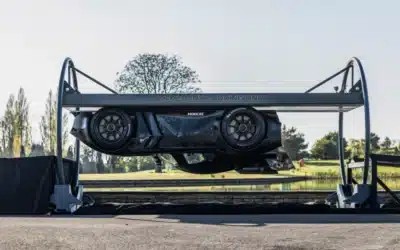The world’s largest climate summit will start in just under five months. Hosted by UAE, it could be a huge and defining moment in the fight against climate change. Or it could result in lots of talk and a lack of action. Whatever actually occurs at the event, the build-up is producing a raft of announcements and initiatives. We look at some of the most interesting and ambitious plans that have been set out over the last few months.
We must try harder
The head of the COP28, Sultan Al Jaber, hasn’t pulled any punches. Earlier this month, he said that countries must accept that they are simply not delivering on climate change targets that they previously committed to and agree a plan to get on track
In a speech in Brussels, Sultan Al Jaber said COP28 should also secure international commitment to triple renewable energy, double energy savings and hydrogen production by 2030.
He urged concerted cooperation: “I challenge you to act in solidarity, put differences aside and put the interest of humanity first. That is the only way we can make transformational, practical progress that delivers for the climate, for our economies and for our people.”
Sultan Al Jaber also called on countries to sign up to a “Cooling Pledge”, which aims to expand cooling to protect the most vulnerable communities, especially in the global south, Small Island States and Least Developed Countries, from extreme heat. This will have tangible, everyday benefits such as enabling people more effectively to keep food fresh and vaccines safe.
The COP28 summit will be the first formal assessment of countries’ progress towards the Paris Agreement’s target to limit climate change to 1.5C of warming compared with pre-industrial levels. Countries’ current policies and pledges would fail to meet that goal.
Money, money, money
Sultan Al Jaber also wants this year’s COP to get resolution on one of the crunch issues that is still hugely contentious; who will actually pay for a “loss and damage” fund to compensate poorer, often low-lying countries, that will be disproportionately affected by climate change. Rich countries agreed to stump up the cash, but have failed to do so yet.
This isn’t the only financial issue at stake. In order to pay for the ‘just’ transition, the whole financial system needs to re-center itself to enable a low carbon future. Finance will be one of the four key themes of the summit, cutting across all other topics.
Specifically, the organizers are setting out to foster action in reforming the international “financial architecture” needed to deliver on the goals of the Paris agreement.
The private sector is seen as needing to play a huge role in the transition, driving financing of initiatives and technologies that can decarbonize every aspect of our lives. Initiatives like the issuance of Green Bonds to enable companies to raise capital for low carbon investments will be key.
Alongside his COP 28 role, Sultan Al Jaber also heads up Masdar, the clean energy company and Adnoc, the UAE’s national oil company, a role that has caused some controversy internationally. Masdar recently completed its first green bond issuance for $750m, the first tranche of a planned $3bn programme. It was five times over-subscribed, and is seen to provide a strong indication of investor appetite.
How are UAE businesses getting involved?
The UAE has set its own target of achieving Net Zero by 2050. Hosting COP28 is putting the country center-stage and it is responding to the increased scrutiny with a wide range of initiatives and commitments.
UAE companies have been urged to join up to a number of international campaigns such as The Race to Zero and the Race to Resilience.
At a media event to market the launch of the so-called Road to COP, UN Climate Change High-Level Champion Razan Khalifa Al Mubarak, commented: “I want to bring the race closer to the region. If you look at it now, there is not enough representation or participation from the region. I want to find why aren’t they engaging and why aren’t they participating.”
Razan also said that another of her priorities is to establish a capacity building hub in the UAE. “I want a climate change hub to provide information but also to train and ensure that we have the right skills for our current employees across sectors,” she said.
Muna Alamoodi, Director of Climate Change at the Ministry Of Climate Change And Environment, speaking at the same event, also gave details of other steps that UAE companies can take. These include shifting towards clean, renewable energy, using eco-friendly alternatives, decreasing waste production, and enhancing energy efficiency across all sectors.
Ms Alamoodi unveiled the National Dialogue for Climate Ambition (NDCA), an initiative overseen by UAE government departments that focuses on key sectors such as Cement, Energy, Mobility, Industries and Manufacturing, and Waste, among others.
She also promoted the idea of participants signing the UAE Climate-Responsible Companies Pledge in order to assist the nation in achieving net-zero emissions by 2050. The pledge urges corporations to pledge to monitor and disclose their greenhouse gas emissions, incorporate climate change reduction into their fundamental business strategies, inspire their stakeholders to partake in climate actions, and interact with all societal sectors in order to formulate net-zero strategies.
The summit itself is being supported directly by many UAE organizations from the non-profit and private sector as well as the government.
For example Al-Futtaim has signed a three-year strategic partnership agreement with Dubai’s Roads and Transport Authority (RTA) to deploy 360 vehicles, including electric and hybrid variants, for use in Dubai’s key conferences and events including COP28.
We can expect to see the frequency of policy initiatives, sponsorship announcements and commitments increase over the coming weeks and months. But we can also hope that substantive progress will actually be secured at the COP28 summit itself.











